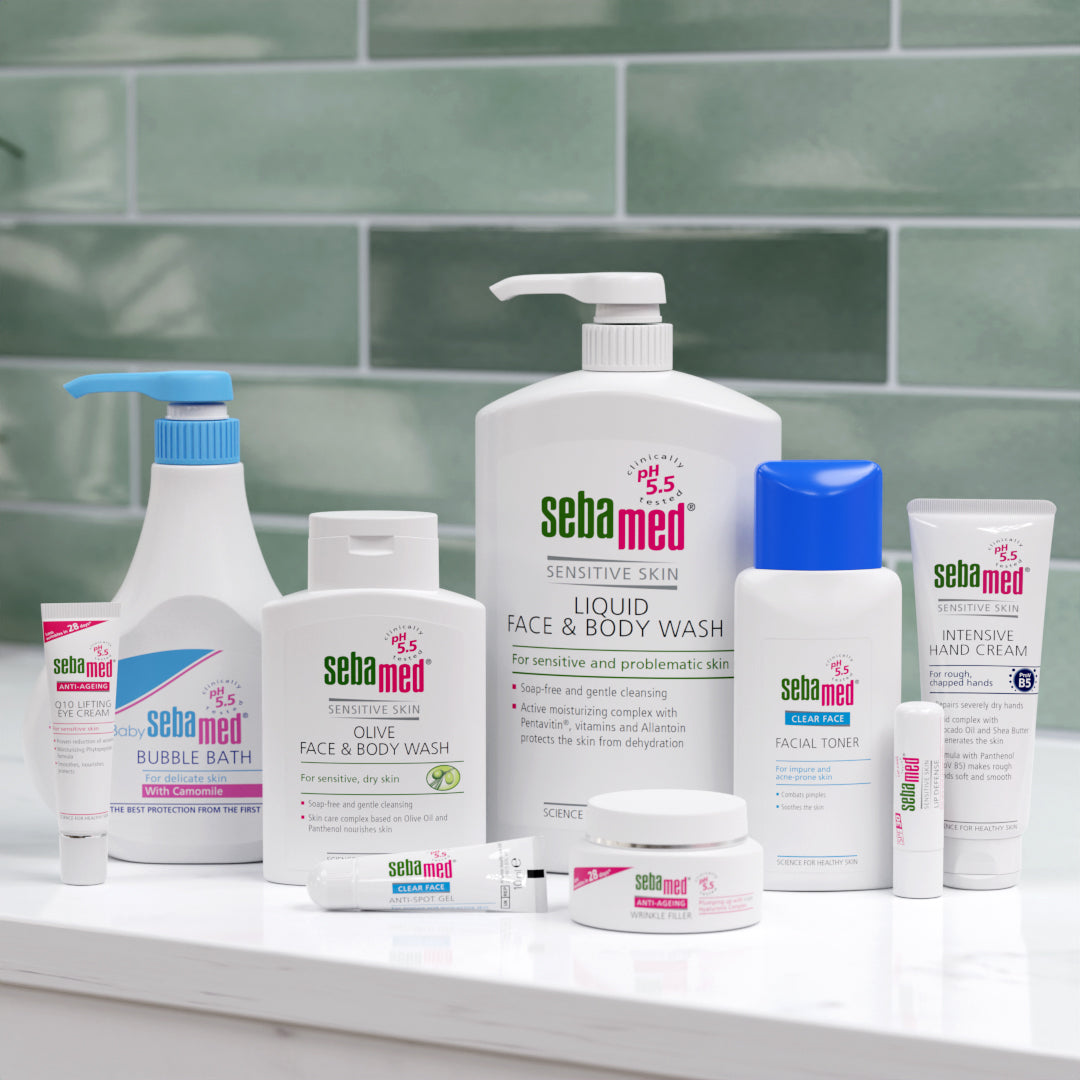Our skin is colonised by billions of bacteria, fungi, and other microorganisms immediately after birth. These tiny organisms form what is known as the skin's microbiome.
Research shows that the skin microbiome plays a huge part in our skin's health; there is a complicated relationship between us, our skin's microbiome, and the environment.
What Does The Skin Microbiome Do?
Recent research shows the importance of our skin's microbiome for an intact acid mantle. The acid mantle is the hydrolipid film on the skin's surface; as it contains water, our skin can be assigned a pH value, which on average is pH 5.5. The acid mantle's job is to repel harmful microorganisms and negative environmental influences - this then protects the skin from infections, irritation, allergies, and drying out. A healthy skin microbiome promotes an intact acid mantle, which minimises the bacterial breakdown of sweat, reducing body odour and acting as a natural deodorant.
The Importance Of Balance
The billions of microorganisms that form our skin's microbiome live in a dynamic balance. This balance is crucial for natural skin protection. A slightly acidic pH value of 5.5 for healthy skin supports the healthy balance between "good" and "bad" microorganisms. This protects the skin from harmful microorganisms and endogenous and exogenous factors.
Maintaining this delicate balance through appropriate skincare and protection is key. For example, avoid cleaning your skin with regular/normal soap, as the soapy water has a pH value of between 8 to 12, which can damage the acid mantle and disrupt the skin's microbiome. Also try to avoid "pH neutral" products, as these have a pH value of 7, harming the acid mantle. sebamed's skincare products feature a pH value of 5.5 to promote healthy skin and protect the acid mantle.
How The Skin's Microbiome Affects Responds To;
External and environmental influences
A combination of many harmful influences - such as inadequate skincare, improper nutrition, mental stress, polluted air, and other environmental influences - can disrupt the skin microbiome's balance. This imbalance then disturbs the protective acid mantle and can increase the risk of skin irritations, infections, and allergies.
Some factors that can influence your skin's health are out of your control. For example, your skin is likely to become drier in the cold winter months; this can especially be a nuisance to those who are already prone to dry and/or sensitive skin. In cases of environmental factors like this, pay attention to how your skin is feeling and take the appropriate measures to protect your skin, such as using sebamed pH-friendly cleansing and moisturising products.
Certain skin conditions
An imbalance in the skin's microbiome, called "dysbiosis," the root cause of which is not always clear. However, "it has been linked to certain health conditions, including eczema (atopic dermatitis), psoriasis, acne, rosacea, and wounds that don’t heal." There is ongoing research into "how the skin microbiome affects conditions such as vitiligo, albinism, dandruff, toenail infections, and warts," as well.
Experts are only just starting to understand the complex relationships and balance between us, the environment, and the skin's microbiome.






